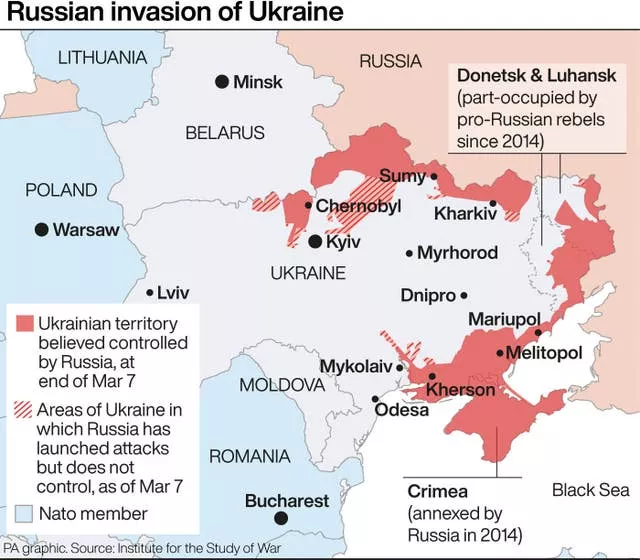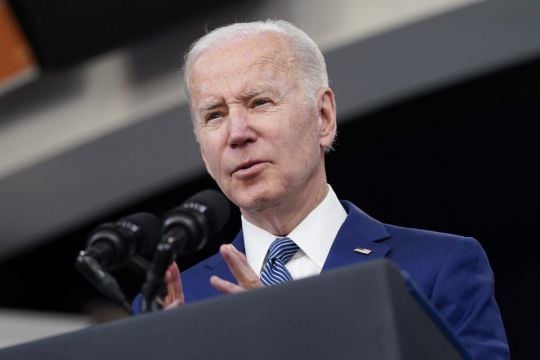Joe Biden has decided to ban Russian oil imports, toughening the toll on Russia’s economy in retaliation for its invasion of Ukraine, according to a source.
The move follows pleas by Ukrainian President Volodmyr Zelensky to US and western officials to cut off the imports, which had been a glaring omission from massive sanctions put in place on Russia over the invasion.
Energy exports have kept a steady influx of cash flowing to Moscow despite otherwise severe restrictions on its financial sector.

The US president is set to announce the move as soon as Tuesday, the source said.
The White House said he will speak on Tuesday morning to announce “actions to continue to hold Russia accountable for its unprovoked and unjustified war on Ukraine”.
The US will be acting alone but in close consultation with European allies, who are more dependent on Russian energy supplies.
Natural gas from Russia accounts for a third of Europe’s consumption of the fossil fuel. The US does not import Russian natural gas.
Mr Biden had explained his reluctance to impose energy sanctions at the start of the conflict two weeks ago saying he was trying “to limit the pain the American people are feeling at the gas pump”.
Before the invasion, Russian oil and gas made up more than a third of the government’s revenues. Global energy prices have surged after the invasion and have continued to rise despite co-ordinated releases of strategic reserves, making Russian exports even more lucrative.
The US and international partners have sanctioned Russia’s largest banks, its central bank and finance ministry, and moved to block certain financial institutions from the Swift messaging system for international payments.
But the rules issued by the Treasury Department allow Russian energy transactions to keep going through non-sanctioned banks that are not based in the US in an effort to minimise disruption to the global energy markets.
US inflation, at a 40-year peak and fuelled in large part by fuel prices, has damaged Mr Biden politically.
The sanctions created a possible trade-off for the president between his political interests at home and abroad. By invading Ukraine, Russia has potentially fed into the supply chain problems and inflation that have been a crucial weakness for Mr Biden, who is now trying to strike a balance between penalising President Vladimir Putin and sparing American voters.
This week, the #vdLCommission meets to discuss:
🔹 Affordable, secure and sustainable energy
🔹 European solidarity with refugees from Ukraine
🔹 Combating violence against women and domestic violence pic.twitter.com/zIsHy4LW8M— European Commission 🇪🇺 (@EU_Commission) March 8, 2022
The European Union is committed to phasing out its dependency on Russian energy as soon as possible, and the 27 nations’ leaders will meet in near Paris later this week for a two-day summit to work on ways to reduce their dependency on Moscow for fossil fuels.
“We agreed to phase out our dependency on Russian gas, oil and coal imports,” said a draft of the summit declaration.
The European Commission is preparing proposals to make it happen.
In the draft statement, EU leaders commit to diversifying “our supplies and routes including through the use of LNG (liquefied natural gas) and the development of biogas and hydrogen”.







